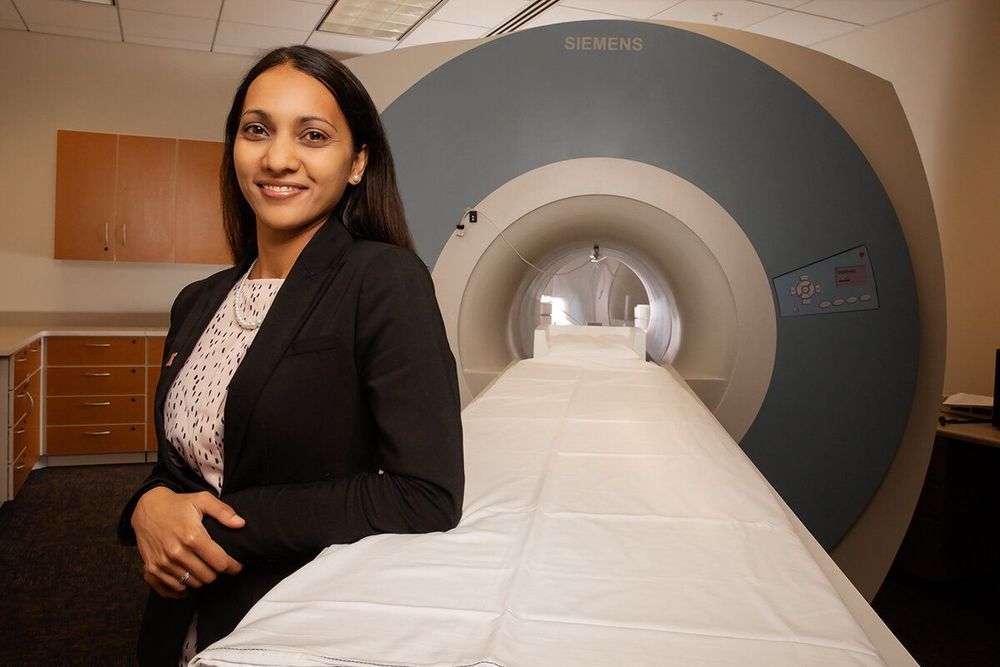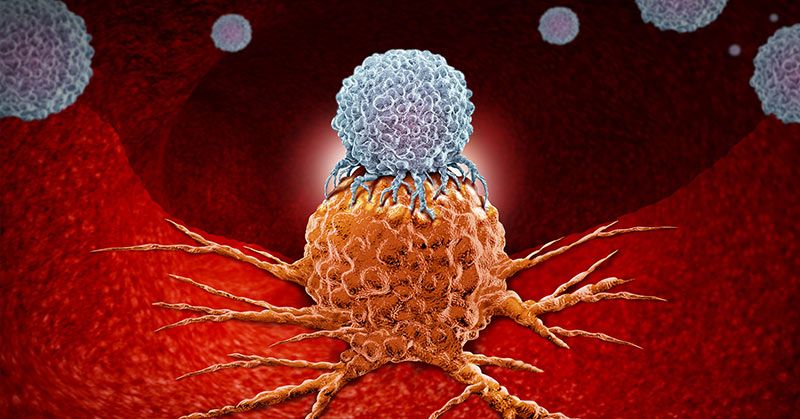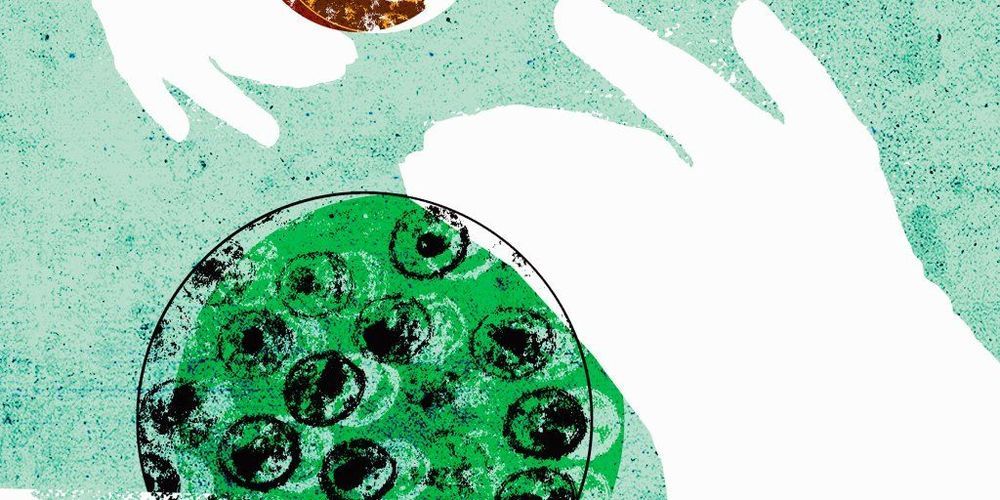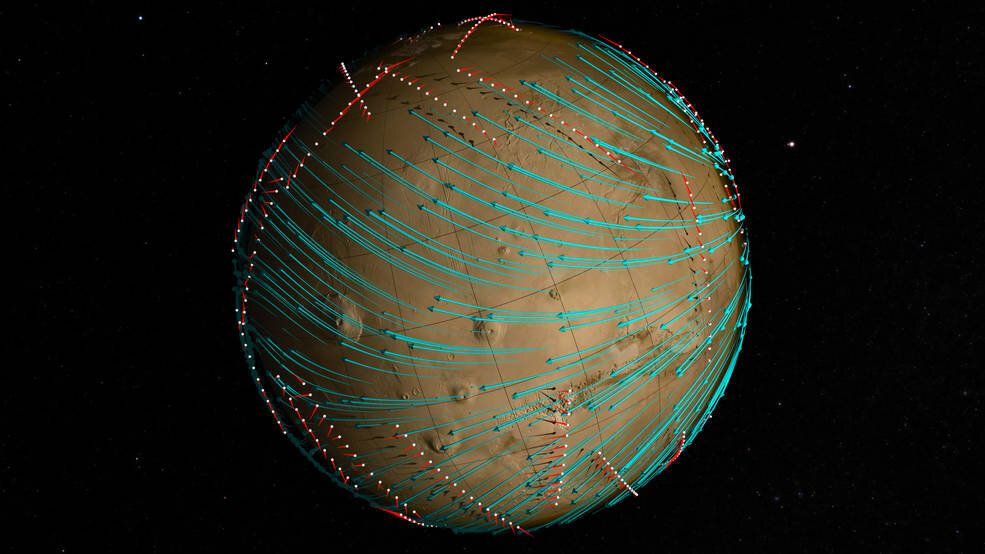Page 7817
Dec 13, 2019
Paradox-Free Time Travel Possible With Many Parallel Universes
Posted by Quinn Sena in categories: cosmology, physics, time travel
If you were to travel back in time to kill your grandparents — let’s ignore the ‘why’ here, for the sake of argument — you would never have been born. Which means there was nobody to kill your grandparents. Which means you were actually born after all, which… hold up, what’s going on here?!
These kinds of brain-breaking paradoxes have been puzzling us forever, inspiring stories ranging from “Back to the Future” to “Hot Tub Time Machine.”
Now, New Scientist reports that physicists Barak Shoshany and Jacob Hauser from the Perimeter Institute in Canada have come up with an apparent solution to these types of paradoxes that requires a very large — but not necessarily infinite — number of parallel universes.
Dec 13, 2019
AgeX and Lineage granted pluripotent patent
Posted by Paul Battista in category: biotech/medical
AgeX Therapeutics and Lineage Cell Therapeutics awarded U.S. patent for ‘Method of Generating Induced Pluripotent Stem Cells’.
Dec 13, 2019
Experts review evidence yoga is good for the brain
Posted by Paul Battista in categories: biotech/medical, health, neuroscience
Scientists have known for decades that aerobic exercise strengthens the brain and contributes to the growth of new neurons, but few studies have examined how yoga affects the brain. A review of the science finds evidence that yoga enhances many of the same brain structures and functions that benefit from aerobic exercise.
The review, published in the journal Brain Plasticity, focused on 11 studies of the relationship between yoga practice and brain health. Five of the studies engaged individuals with no background in yoga practice in one or more yoga sessions per week over a period of 10–24 weeks, comparing brain health at the beginning and end of the intervention. The other studies measured brain differences between individuals who regularly practice yoga and those who don’t.
Each of the studies used brain-imaging techniques such as MRI, functional MRI or single-photon emission computerized tomography. All involved Hatha yoga, which includes body movements, meditation and breathing exercises.
Dec 13, 2019
Scientists Discover Molecule That Triggers Self-Destruction of Pancreatic Cancer Cells
Posted by Paul Battista in categories: biotech/medical, materials
Neal Francis Vanderee posted this {I declare the names of anyone whom I share their material if their name does not share with the posting} another amazing act and feat of physiological research… AEWR.
30 days after receiving the treatment, the mice with pancreatic cancer cells transplanted from humans experienced a 90% reduction in tumors.
Dec 13, 2019
100 Mysterious Blinking Lights in The Night Sky Could be Evidence of Alien Life… or Something Weird, Say Boffins
Posted by Quinn Sena in category: alien life
Dec 13, 2019
Scientists map Mars’ global wind patterns for the first time
Posted by Quinn Sena in categories: climatology, space travel
Today, a paper published in Science documents for the first time the global wind circulation patterns in the upper atmosphere of a planet, 120 to 300 kilometers above the surface. The findings are based on local observations, rather than indirect measurements, unlike many prior measurements taken on Earth’s upper atmosphere. But it didn’t happen on Earth: it happened on Mars. On top of that, all the data came from an instrument and a spacecraft that weren’t originally designed to collect wind measurements.
In 2016, Mehdi Benna and his colleagues proposed to the Mars Atmosphere and Volatile EvolutioN (MAVEN) project team that they remotely reprogram the MAVEN spacecraft and its Natural Gas and Ion Mass Spectrometer (NGIMS) instrument to do a unique experiment. They wanted to see if parts of the instrument that were normally stationary could “swing back and forth like a windshield wiper fast enough,” to enable the tool to gather a new kind of data.
Initially, the MAVEN project team was reluctant to implement the modifications Benna and his colleagues requested. After all, MAVEN and NGIMS had been orbiting Mars since 2013, and they were working quite well collecting information about the composition of the Mars atmosphere. Why put all that at risk? Benna and his colleagues argued that this project would collect new kinds of data that could shape our understanding of the upper atmosphere on Mars, inform similar studies on Earth, and help us better understand planetary climate.


















